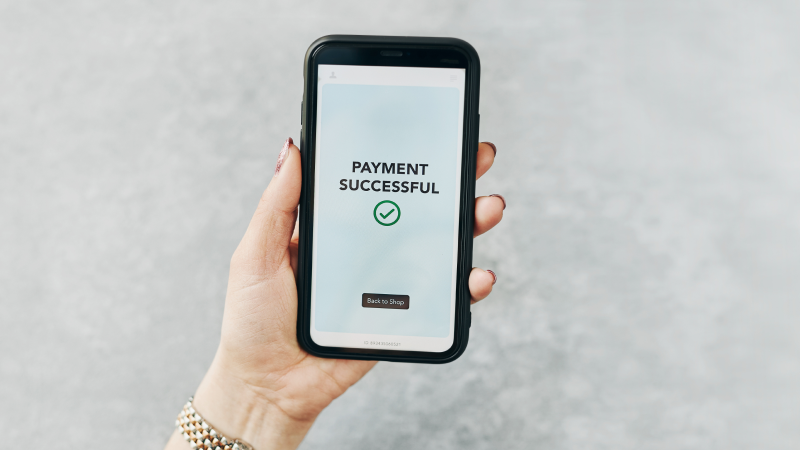So, how have digital wallets influenced consumer behavior and business models? And what caused this expected yet accelerated shift?
Let’s start by understanding digital wallets.
What is a digital wallet?
A digital wallet is an app that securely stores your payment details, like credit and debit cards, on your smartphone or computer. When you make a purchase, instead of using your actual card number, the wallet generates a one-time code for the transaction.
Digital wallets are convenient as they enable quick payments without physical cards. Beyond just payments, they store gift cards, tickets, and loyalty cards, keeping everything you need in one easily accessible place. With a simple tap or scan, you can complete transactions quickly.
Digital wallet adoption trends and statistics
After the pandemic, consumers and businesses settled into the new payment normal-digital wallets. According to McKinsey’s 2023 Digital Payments Consumer Survey, the adoption of in-store digital payments increased as consumers returned to in-person shopping. While the return was a reprieve to brick-and-mortar stores, many had to keep up with the new customer preference of paying through their electronic devices.
According to a Forbes Advisor survey, digital wallets are rapidly becoming a preferred payment method for many consumers. Approximately 64% of respondents said they use digital wallets at least as much as traditional payment methods. An overwhelming 72% stated they would consider making digital wallets their primary payment method for shopping, and 58% said they would do the same for travel.
Generation Z, in particular, is leading this shift. Among those aged 18 to 26, 91% said they would adopt digital wallets as their primary payment method for shopping, and 86% would do the same for travel. This trend isn’t limited to younger people—59% of Millennials and 50% of Gen Xers use digital wallets more frequently than traditional methods.
Not everyone is on board
Even though digital wallets are popular, many people are still unsure about using them. In the same Forbes Advisor survey, approximately 14% of the participants hadn’t jumped on the digital wallet bandwagon.
Two crucial factors stood out when these individuals provided answers about the barriers preventing them from using digital wallets. Many people said they’re worried about keeping track of their spending online. They pointed out how hard it is to keep track of their money with digital wallets.
On top of that, other consumers are still hesitant to try digital wallets because they’re worried about security. They feared data breaches and theft. These findings show digital wallets may still need to evolve to address consumer worries about financial oversight and security.
Potential market impact of digital wallets
Increasing digital wallet adoption benefits two key business stakeholders in the following ways:
Effect on consumers
- Speed is one of the main benefits, making it possible to tap your phone at the checkout or complete an online purchase in seconds.
- Convenience comes next—no more searching for cash or standing in line. You can buy whatever you want, whenever you want, from wherever you are.
- Security also stands out, as most digital wallets use encryption and authentication to protect your information, making them safer than carrying physical cash.
Impact on merchants
- Digital payments generally cost merchants less than dealing with cash or checks.
- Many digital wallets also have built-in fraud detection tools, helping mitigate fraudulent transactions.
- Offering digital wallet payment options can significantly improve customer satisfaction.
- Loyalty programs linked to digital wallets also encourage customers to return for repeat purchases, increasing customer retention.
Merchants can also analyze digital payment data to understand customer preferences. They can then use this information to create tailored promotions and discounts, which can be sent directly to customers through their digital wallets.
As digital wallets continue to change how people pay, consumers and businesses find themselves dictating the future of payments. The convenience, speed, and security of digital wallets offer undeniable benefits, and with both parties providing feedback, digital wallets may soon be the go-to payment option for many.

